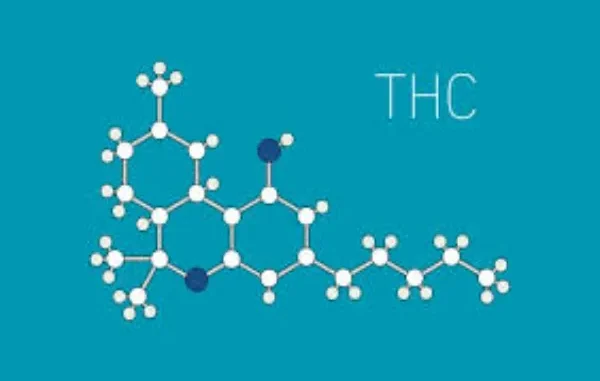

Have you experienced difficulty winding down following a busy day, battled restlessness at night, or suffered with tension that never seems to go away? You’ve probably been searching for alternatives that don’t involve unpleasant side effects. Others face problems that include a change in appetite, unpredictable moods, or simply the inability to “switch off” when they want to rest.
Everyday hardships can affect an individual’s focus, energy, and overall wellness. As a viable and natural alternative to these challenges, cannabinoids are gaining popularity to alleviate these issues.
With a plethora of compounds in the cannabis family, the two cannabinoid compounds that stand out are: Delta-9 THC and THCP. Each compound is similar yet substantially different in potency, therapeutic benefits, and usage.
In this article, we will discuss the differences between Delta-9 and THCP, and outline the potential effects of these cannabinoids.
What is THCP?
D9 THCP (Delta-9-tetrahydrocannabiphorol) is a naturally occurring cannabinoid that has been discovered more recently. Its chemical structure is almost identical to Delta-9 THC, but it may have significantly more potency according to preliminary studies. The key to its potency is its stronger binding affinity to cannabinoid receptors in the body, and it is worth monitoring for therapeutic potential in the future. At this point, there is still limited research on THCP, but due to its enhanced potency, it may have deeper effects or a longer duration than Delta-9.
What is Delta-9 THC?
Delta-9 tetrahydrocannabinol, or Delta-9 THC, is the most prevalent cannabinoid found in cannabis. When people talk about THC, they generally refer to Delta-9 THC. It is extensively researched and is recognized for its psychoactive properties, but it also has potential therapeutic benefits.
Delta-9 is still regulated in many areas of the world due to its intoxicating properties, but continues to attract ongoing cannabinoid research.
Key Effects and Benefits of Delta-9 and THCP
In this section, we’ll identify the primary effects and benefits of Delta-9 and THCP, breaking them down into eight areas of effectiveness that support overall wellness with these two cannabinoids.
1. Mood Enhancement

It can be difficult to have a balanced mood when dealing with modern stressors.
Delta-9 has been associated with elevating mood due to the release of dopamine, which can lead to feelings of euphoria and positivity. THCP, due to its higher potency, can potentially offer these effects in a more pronounced manner, even at smaller doses. This could benefit someone who is feeling low energy or experiencing difficulty with their emotional balance.
Proper dosing is important, as the intensity can also increase the likelihood of an overwhelming experience.
2. Relaxation
One of the most popular effects of cannabinoids is on the body and mind.
Delta-9 is a good choice for people wanting to reduce their stress levels and be calm – many people use it to unwind after a long day.
Having said that, THCP has the potential to heighten the experience, given its more potent receptor activity. This may provide a really great option for relaxation, but it should still be taken with caution to avoid unwanted discomfort.
3. Sleep Support

Disruptions to sleep are frequent occurrences, whether they be related to stress, inconsistent sleep patterns, or active thinking. Delta-9 has demonstrated its ability to help users fall asleep quickly and deeply by slowing the neural pathway.
Like delta-9, THCP is extremely potent and may provide a dose of sedative, offering a potential alternative to the individual with more chronic sleep issues. For those who have not had success with traditional sleep aids, cannabinoids may be a natural avenue to explore.
4. Appetite Support
A lack of appetite can result in fatigue, nutritional deficiencies, and reduced resilience. Delta-9 has been known for increasing appetite and is often referred to as “the munchies.” Though THCP may have a longer hold or increased intensity of appetite stimulation, and hence could be useful for persons with low appetite from stress, medical treatments, or other ailments. Helping with appetite improves overall health and, therefore, energy.
5. Potency and Efficiency

A significant difference between Delta-9 and THCP is its potency. Delta-9 has been around a long time and provides consistent effects at typical doses, making it a compound that many people are accustomed to using. Conversely, THCP has been said to be more efficient in binding to receptors, which could allow for smaller amounts of THCP to achieve the same result as, or even greater effect than, would be achieved with Delta-9. Because of this pharmacological efficiency, THCP may become a useful therapeutic agent for those who desire greater outcomes from smaller amounts of product.
6. Therapeutic Potential

In addition to mood, relaxation, sleep, and appetite, researchers are beginning to study other possible therapeutic applications for both cannabinoids. For example, Delta-9 has been assessed for its potential to relieve pain, as well as reduce inflammation and even support some mental health conditions.
THCP may also open new avenues for more targeted treatment due to its greater binding interaction with the body’s endocannabinoid system. While research is still underway, these possibilities are very exciting and should be fully explored.
Final Thoughts
Delta-9 and THCP both stand out as powerful cannabinoids with unique effects and potential benefits. Delta-9 is well established, backed by years of study and widespread use, while THCP represents an exciting frontier due to its potency.
Together, they highlight the evolving landscape of cannabinoid science and how natural compounds can play a role in enhancing well-being. For those seeking mood support, relaxation, improved sleep, or appetite stimulation, these cannabinoids may offer valuable solutions when used responsibly. As research expands, understanding how to integrate them safely and effectively will become even more important.






Leave a Reply